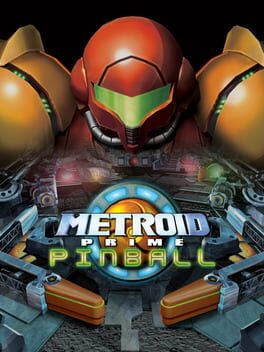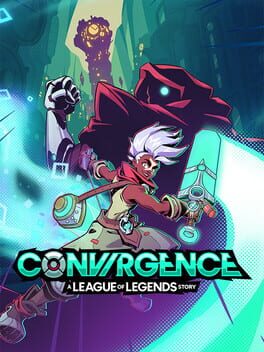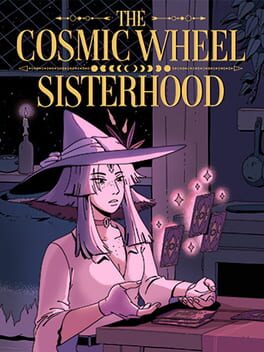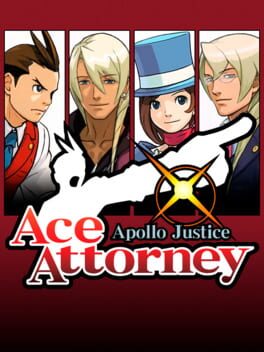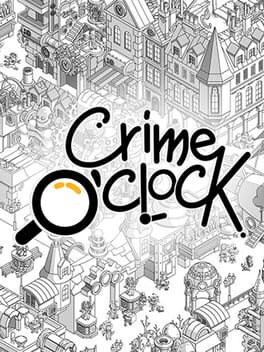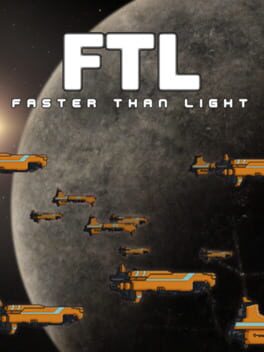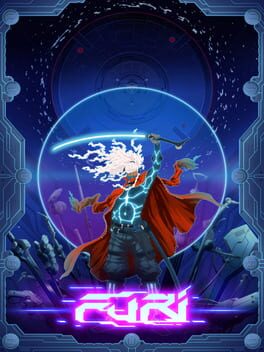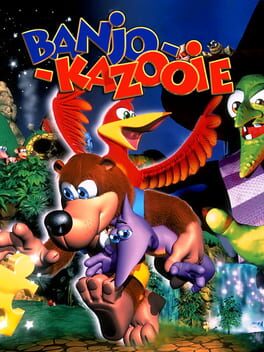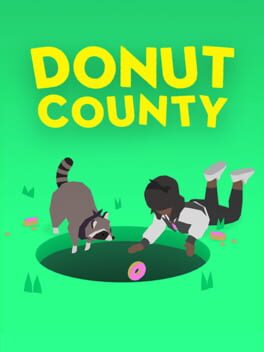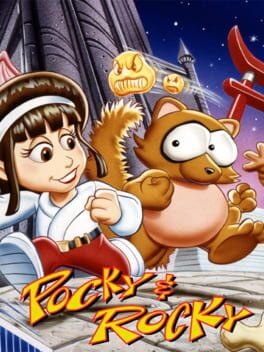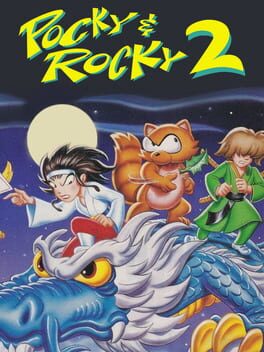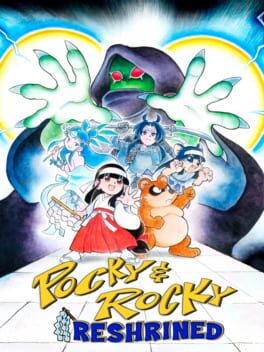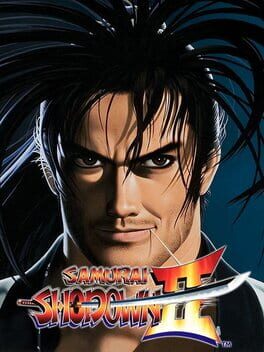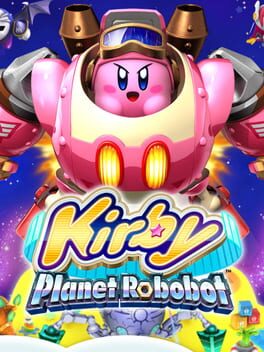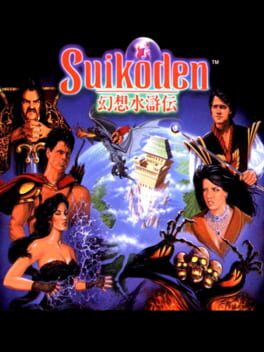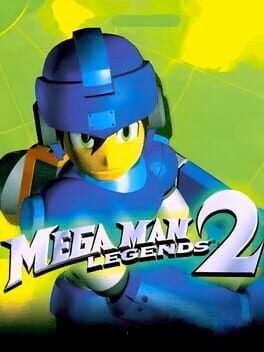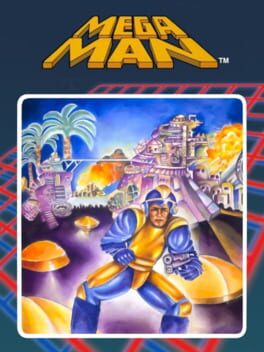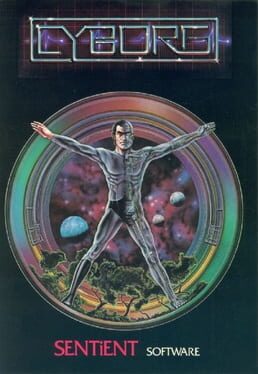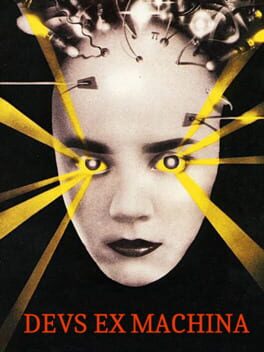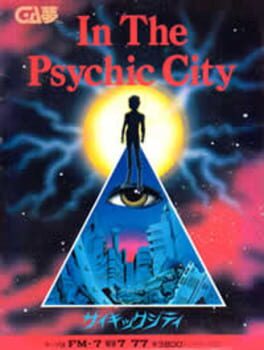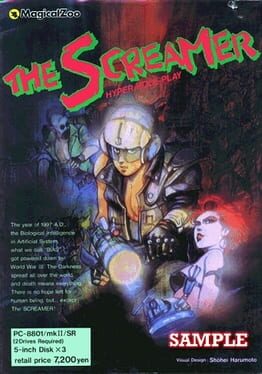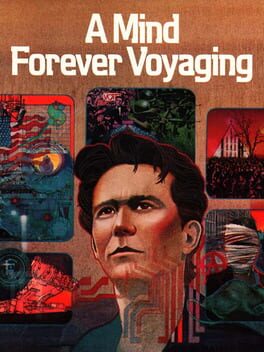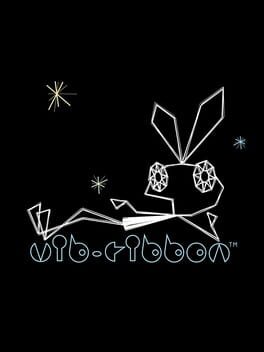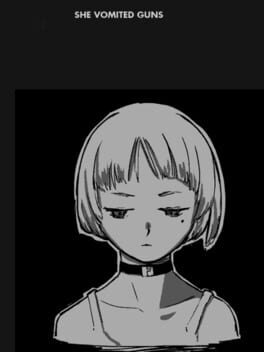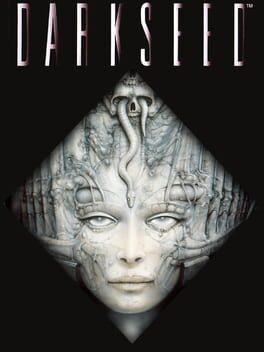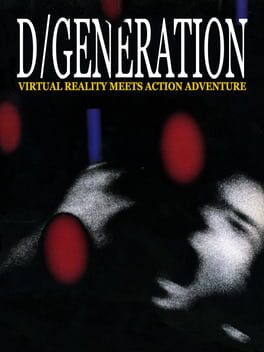riotkiwi
183 reviews liked by riotkiwi
Baldur's Gate 3
2020
Started this way back in August but it took me forever to finally finish it clearly. Over 100 hours poured in puts it among the longest games I’ve played, though I guess I’m kinda glad I went so slowly given Larian would add another new patch whenever I decided to turn it back on
It’s been a while since I’ve played through the Divinity games, but given how great Original Sin 2 was I’m not surprised that this is as highly acclaimed as it is also. BG3’s a very impressive RPG in design and presentation, managing to maintain the level of depth traditional to this style of top-down CRPGs, but with immense AAA production values to match which for the genre sets it apart from everything else in that regard. I’ll admit I’m not really familiar with tabletop D&D and its rules (nor have I played the first two Baldur’s Gate games yet), but as a standalone experience I wasn’t lost and it’s amazing what they pulled off here. The closest I guess I can compare it to is like a more ambitious Dragon Age: Origins, which is awesome
There is just so much here, you’ll probably spend dozens of hours in the first act and its opening areas alone cause of how dense with content it is. Basically all of it (while being mostly optional) is worth doing which made it very easy to sink a lot of time into, and given the game’s many different quest variations and choices you’d likely get a lot of replayability out of it too. Graphically it looks fantastic, but what Larian really shows off is how dialogue is done with unique cutscenes instead of text boxes, using full mocap for literally every single NPC you can talk to. Given how BG3 is no less massive in scale, that’s a pretty remarkable advancement from their previous games
The main story itself is good, and the stakes with trying to remove the tadpoles in your head keeps it compelling. But I will say narratively I think it peaks with Act 2, as Act 3 gets a bit less focused to me and wasn’t really a fan of how rushed parts of the ending felt. I did like the epilogue and how it wraps everything up but as far as I know, that part wasn’t even in the game at launch and had to be added with a patch
The characters and their performances are largely top notch though. Some of your companions are more fleshed out than others (Shadowheart and Astarion were my favorites), but for the most part they’re all memorable and their personal quests do a good job developing them throughout. Personalization for your main character is strong too, though will probably depend on whether you choose a custom background or an origin. I made the perhaps ill advised decision to do my first playthrough as “The Dark Urge” which is considered an evil path, but I found it really interesting to roleplay as someone trying to be good despite that. It adds a very cool amount of connection to your character and the story, and really liked how varied your dialogue options are so you can still shape how you respond to your own actions and past. It seemed to affect quite a lot especially in Act 3 too so can’t say how much is changed without it, but would recommend for sure. Whenever I decide to replay I’ll try going full evil next though >:)
Combat is of course turn based with the standard fantasy classes you’d expect to choose from, and since this is D&D based all actions and skill checks are done with dice rolls. The RNG tied to this can be annoying (will not deny I have a long list of quicksaves), but I enjoyed its usage in gameplay and decision making. Will say combat can get really slow at times though, why they never have a way to speed up turns in these games is beyond me, you’ll frequently fight numerous enemies at once and having to sit through every single move they make gets a bit tedious at times. I also felt like a lot of the loot/equipment you find was a bit unrewarding, I ended up using armor and weapons I found in Act 1 for most of the entire game cause I didn’t really have much reason to switch them out. But that may just be a D&D thing with progression, especially since the level cap is 12
Besides that the only notable problem for me was performance, which could be better… It’s definitely been improved with all the patches, but at release you could tell it still needed much more polish and even now it’s not exactly stable. I’ve actually played this both on PC (Steam Deck) and PS5, though both weren’t ideal for different reasons. On Steam Deck it ran fine for most of Act 1 and Act 2 at 30FPS, and with FSR 2.2 (this wasn’t added til later tbf) it looks pretty great now also. Act 3 really starts to push it though, it’s the most impressive part of the game on a technical level given how packed the area is with so many NPCs, but clearly the least optimized as I had near constant FPS drops and more noticeable bugs like frequent animation lags or quests being easier to sequence break. That said, those with much better hardware for PC probably won’t have as much of an issue
PS5 in comparison runs as it should, even Act 3 mostly holds 60 FPS in performance mode from what I’ve played which is great. This would be the obvious way to play BG3, if not for the insane amount of crashes I’ve had on it that crippled the port for me. I haven’t played something that crashed this often since Cyberpunk at launch, past a point I couldn’t even open my saves anymore without getting kicked off and some of them even started saying they were corrupted somehow, rendering it basically unplayable on there (thankfully there’s cross save support). This is still not fixed in my case and not sure if it’s just my PS5 or something to do with the game on console, but regardless wouldn’t advise buying it on there. Some don’t seem to have as much of a struggle with it though so YMMV on that I suppose
Despite the gripes (and extreme annoyance at the PS5 version), I really enjoyed BG3 and was sad to see it end after all the time I spent on it. More than anything though I’m glad it’s such a massive success for Larian, despite their positives isometric CRPGs are usually seen as having niche appeal so it’s cool to finally have one break out into mainstream like this has. Hopefully bodes well for the genre going forward
It’s been a while since I’ve played through the Divinity games, but given how great Original Sin 2 was I’m not surprised that this is as highly acclaimed as it is also. BG3’s a very impressive RPG in design and presentation, managing to maintain the level of depth traditional to this style of top-down CRPGs, but with immense AAA production values to match which for the genre sets it apart from everything else in that regard. I’ll admit I’m not really familiar with tabletop D&D and its rules (nor have I played the first two Baldur’s Gate games yet), but as a standalone experience I wasn’t lost and it’s amazing what they pulled off here. The closest I guess I can compare it to is like a more ambitious Dragon Age: Origins, which is awesome
There is just so much here, you’ll probably spend dozens of hours in the first act and its opening areas alone cause of how dense with content it is. Basically all of it (while being mostly optional) is worth doing which made it very easy to sink a lot of time into, and given the game’s many different quest variations and choices you’d likely get a lot of replayability out of it too. Graphically it looks fantastic, but what Larian really shows off is how dialogue is done with unique cutscenes instead of text boxes, using full mocap for literally every single NPC you can talk to. Given how BG3 is no less massive in scale, that’s a pretty remarkable advancement from their previous games
The main story itself is good, and the stakes with trying to remove the tadpoles in your head keeps it compelling. But I will say narratively I think it peaks with Act 2, as Act 3 gets a bit less focused to me and wasn’t really a fan of how rushed parts of the ending felt. I did like the epilogue and how it wraps everything up but as far as I know, that part wasn’t even in the game at launch and had to be added with a patch
The characters and their performances are largely top notch though. Some of your companions are more fleshed out than others (Shadowheart and Astarion were my favorites), but for the most part they’re all memorable and their personal quests do a good job developing them throughout. Personalization for your main character is strong too, though will probably depend on whether you choose a custom background or an origin. I made the perhaps ill advised decision to do my first playthrough as “The Dark Urge” which is considered an evil path, but I found it really interesting to roleplay as someone trying to be good despite that. It adds a very cool amount of connection to your character and the story, and really liked how varied your dialogue options are so you can still shape how you respond to your own actions and past. It seemed to affect quite a lot especially in Act 3 too so can’t say how much is changed without it, but would recommend for sure. Whenever I decide to replay I’ll try going full evil next though >:)
Combat is of course turn based with the standard fantasy classes you’d expect to choose from, and since this is D&D based all actions and skill checks are done with dice rolls. The RNG tied to this can be annoying (will not deny I have a long list of quicksaves), but I enjoyed its usage in gameplay and decision making. Will say combat can get really slow at times though, why they never have a way to speed up turns in these games is beyond me, you’ll frequently fight numerous enemies at once and having to sit through every single move they make gets a bit tedious at times. I also felt like a lot of the loot/equipment you find was a bit unrewarding, I ended up using armor and weapons I found in Act 1 for most of the entire game cause I didn’t really have much reason to switch them out. But that may just be a D&D thing with progression, especially since the level cap is 12
Besides that the only notable problem for me was performance, which could be better… It’s definitely been improved with all the patches, but at release you could tell it still needed much more polish and even now it’s not exactly stable. I’ve actually played this both on PC (Steam Deck) and PS5, though both weren’t ideal for different reasons. On Steam Deck it ran fine for most of Act 1 and Act 2 at 30FPS, and with FSR 2.2 (this wasn’t added til later tbf) it looks pretty great now also. Act 3 really starts to push it though, it’s the most impressive part of the game on a technical level given how packed the area is with so many NPCs, but clearly the least optimized as I had near constant FPS drops and more noticeable bugs like frequent animation lags or quests being easier to sequence break. That said, those with much better hardware for PC probably won’t have as much of an issue
PS5 in comparison runs as it should, even Act 3 mostly holds 60 FPS in performance mode from what I’ve played which is great. This would be the obvious way to play BG3, if not for the insane amount of crashes I’ve had on it that crippled the port for me. I haven’t played something that crashed this often since Cyberpunk at launch, past a point I couldn’t even open my saves anymore without getting kicked off and some of them even started saying they were corrupted somehow, rendering it basically unplayable on there (thankfully there’s cross save support). This is still not fixed in my case and not sure if it’s just my PS5 or something to do with the game on console, but regardless wouldn’t advise buying it on there. Some don’t seem to have as much of a struggle with it though so YMMV on that I suppose
Despite the gripes (and extreme annoyance at the PS5 version), I really enjoyed BG3 and was sad to see it end after all the time I spent on it. More than anything though I’m glad it’s such a massive success for Larian, despite their positives isometric CRPGs are usually seen as having niche appeal so it’s cool to finally have one break out into mainstream like this has. Hopefully bodes well for the genre going forward
Cosmic Wheel Sisterhood is made of incredibly interesting game design ideas, but is occasionally let down by inconsistent writing quality.
That's not to say the writing is bad -- some of it is very good! -- but there are passages that felt like mid-2010s AO3 prose instead of Professional Videogame Writing, if that makes sense.
There's also some occasional tension between your own role-play and the game's text. Certain dialogue choices ask you to express explicit character traits (e.g. do you value Romance, Knowledge, or Power), but the player-character will often say things that directly contradict the character-writing you've done on your own.
With that said: if you think a cute wiccan lesbian visual novel deckbuilder is your sort of game, you should absolutely play this.
That's not to say the writing is bad -- some of it is very good! -- but there are passages that felt like mid-2010s AO3 prose instead of Professional Videogame Writing, if that makes sense.
There's also some occasional tension between your own role-play and the game's text. Certain dialogue choices ask you to express explicit character traits (e.g. do you value Romance, Knowledge, or Power), but the player-character will often say things that directly contradict the character-writing you've done on your own.
With that said: if you think a cute wiccan lesbian visual novel deckbuilder is your sort of game, you should absolutely play this.
An absolutely wonderful little game. Deconstructeam have become some of my favourite game devs, with their focus on unconventional narrative experiences with a heavy queer and left leaning focus. From their small game jam projects to full releases like this, I always get something out of it and walk away with a lot to think about
Honestly, my main hangup (and I recognize this absolutely might be own my feelings of insecurity and invisibilty in queer spaces) is that it feels a bit alienating towards transmasc people, like another review mentioned. The game explicitly mentions that witches can only be women and non binary, and there's a plotline about a trans woman being a witch that I thought was sweet but also recognize that it's not my place to judge since I know some negative reviews weren't happy with it - but the game skirts around the idea of transmasc people existing, while it's awkwardly sitting in my mind and it just felt a bit cruddy. I guess in a way it can't mention them? I could go into the way "women and non binary only" spaces exist in real life, and usually serve as a way to alienate certain groups, but that may be reading too deep into things. Either way, there were only a few scenes where I felt this got in the way of enjoyment and am mostly able to push it aside
The writing here is so fun and powerful. Some might say it's cheesy but for me, it really works. Although it will often give you small glimpses and vignettes into its world, rather than super in depth looks, but I kinda love that because it feels like poetry
I think it's worth noting that the second half of the game is more of a political campaign sim, where you allocate people to tasks and try to influence others, which I did not expect. It isn't bad or anything, but I do think I preferred the first half of the game. Simply talking to witches, creating cards and reading fortunes were strong enough mechanics by themselves that they would have worked for the full game thanks to the high quality/intriguing enough writing
Honestly, my main hangup (and I recognize this absolutely might be own my feelings of insecurity and invisibilty in queer spaces) is that it feels a bit alienating towards transmasc people, like another review mentioned. The game explicitly mentions that witches can only be women and non binary, and there's a plotline about a trans woman being a witch that I thought was sweet but also recognize that it's not my place to judge since I know some negative reviews weren't happy with it - but the game skirts around the idea of transmasc people existing, while it's awkwardly sitting in my mind and it just felt a bit cruddy. I guess in a way it can't mention them? I could go into the way "women and non binary only" spaces exist in real life, and usually serve as a way to alienate certain groups, but that may be reading too deep into things. Either way, there were only a few scenes where I felt this got in the way of enjoyment and am mostly able to push it aside
The writing here is so fun and powerful. Some might say it's cheesy but for me, it really works. Although it will often give you small glimpses and vignettes into its world, rather than super in depth looks, but I kinda love that because it feels like poetry
I think it's worth noting that the second half of the game is more of a political campaign sim, where you allocate people to tasks and try to influence others, which I did not expect. It isn't bad or anything, but I do think I preferred the first half of the game. Simply talking to witches, creating cards and reading fortunes were strong enough mechanics by themselves that they would have worked for the full game thanks to the high quality/intriguing enough writing
First, you created your world.
What should a game be? I've never been inside the room when a studio decides to make something new. It's not hard to imagine what it's like to have all the potential in the world in front of you, just waiting to be molded, but rarely is that the most accurate picture of what the creation of anything new on a significant scale looks like. Why would most developers bother asking what a game should be? What it is is set in stone from before they even began: It is a product, first and foremost. This doesn't preclude it being art, even great art—the two categories are not mutually exclusive, even if they are in tension with one another.
But when I sit down and play The Cosmic Wheel Sisterhood, it feels like everything about it was designed downstream of that one vital question of what a game should even be. I feel this way with Pentiment, with Heaven's Vault, with Strange Horticulture, Book of Hours, and Suzerain: It feels like I am standing on the edge of a new world, even while they are inescapably familiar and old in many ways. But so it is for anything new. Nothing springs out of the aether. These games and their designers recognize that what they are is written in their very essence—not merely their code, any more than our DNA is our essence exactly—and that we are the ones who write what that essence can be.
The Cosmic Wheel Sisterhood stuns with its structure. It loosely aligns itself into chapters and acts, following a linear path, but one that is hard to distinguish from the little splits in every direction flattened under the feet of those who were once lost here. That is to say: I had no idea where the game was taking me, but I was eager to follow and see what I could along the way. You build a deck that is not quite tarot. You read the cards for those you meet. You change the rhythm of fate. This is the main connective tissue of the game, but the game doesn't so much revolve around mechanics as it does around the ideas of fate and meaning. Halfway through the mechanical focus of the game completely pivots and you find yourself mired in a political race.
This prospect thrilled me. So often a world is constructed to draw limitations on a narrative when working with something this intimate in scope. It is the jailer: You cannot leave this single location, and the Lore justifies why that is. Here, the world is constructed to shatter the limitations that we are stuck with. If we are jailed, why is that, who enforces it, and how can we interact with the world nevertheless? The existence of the jailer and the jailing society are contained within the jail itself. The smallness of this game creates something that feels so expansive that when you look back at the end, it's hard to believe it's just been a couple hours.
Much of that, to me, is created precisely by the opacity of the game and its mechanics, similarly to many of the games I listed previously. I'll say it: I'm fucking tired of the fetishization of player agency, letting you do anything and go everywhere or whatever nonsense that idea has morphed into. I don't need games to be a world that I live in for exorbitant amounts of time. I love when games have totally inscrutable mechanics and some degree of randomness and lock you out of events and force you to just reckon with whatever decisions you made. Give me severe limitations in scope and options, just make it interesting. Have a vision, for god's sake!
And yet: The Cosmic Wheel Sisterhood's vision is of a world in which you truly construct your own meaning (which is a funny thing to say, given that meaning is perhaps the only pure act of creation that any of us engage in). It is all about agency. There's an idea here about playing the cards you're dealt by recognizing that you get to decide what the cards mean, despite the limitations of each card. But once you lay down the cards, the truth is decided. Fortuna writes reality.
Which is a funny tension, isn't it, the idea that agency is real and you decide what is, but then how could anyone else have agency when you simply write what is? How could even you have agency once you've read the cards? It's that delicious tension that lies at the heart of this game, time laid out flat so that the future and the past and the present are all just here at once when you shuffle your deck. I feel this tension most during the peak of the political campaign when a Cosmic Poet stops by to help you. Such a small thing and still we reach for the cards to generate the poem that we would have written even without the cards, skipping straight to the end that could not have been without all that we skipped over. They call it a paradoxical poem. It's beautiful:
First, you created your world. Waiting on the first beat of a new universe, you float, weightless, timeless, inside the potential of magic. This is what happens when you hold two mirrors together.
A piece of art is almost like a person. You see the fragmented experiential pieces of all that created them: the other. You see the thoughts lifted from your own head and reflected back at you: the self. You recognize the self inside the other and the other inside the self. I think I love this tension of agency undermining itself because ultimately, who gives a fuck? I don't care about whether I really have agency in a game. I just want it to be an almost-person, to be a mirror. I want us to bounce light back and forth between us until it fades away into reflected incoherence, fully subsumed into something new that we've created by staring into each others' abyss. I want it to create something new inside me that will fester and grow until it springs forth into something beautiful.
This is what happens when you hold two mirrors together: You create. The beginning was written in the end, and the end in the beginning. What difference is there, really, when time folds against itself upon the draw of a card?
At the end of the game, it turns out nothing you did really changes anything. It all collapses back into itself, into the fate which you wrote at the very beginning of the game. You were picking a card without realizing that is what you were doing. The strokes of reality had already been drawn from that very moment.
But in-between the strokes you found everything that matters.
What should a game be? I've never been inside the room when a studio decides to make something new. It's not hard to imagine what it's like to have all the potential in the world in front of you, just waiting to be molded, but rarely is that the most accurate picture of what the creation of anything new on a significant scale looks like. Why would most developers bother asking what a game should be? What it is is set in stone from before they even began: It is a product, first and foremost. This doesn't preclude it being art, even great art—the two categories are not mutually exclusive, even if they are in tension with one another.
But when I sit down and play The Cosmic Wheel Sisterhood, it feels like everything about it was designed downstream of that one vital question of what a game should even be. I feel this way with Pentiment, with Heaven's Vault, with Strange Horticulture, Book of Hours, and Suzerain: It feels like I am standing on the edge of a new world, even while they are inescapably familiar and old in many ways. But so it is for anything new. Nothing springs out of the aether. These games and their designers recognize that what they are is written in their very essence—not merely their code, any more than our DNA is our essence exactly—and that we are the ones who write what that essence can be.
The Cosmic Wheel Sisterhood stuns with its structure. It loosely aligns itself into chapters and acts, following a linear path, but one that is hard to distinguish from the little splits in every direction flattened under the feet of those who were once lost here. That is to say: I had no idea where the game was taking me, but I was eager to follow and see what I could along the way. You build a deck that is not quite tarot. You read the cards for those you meet. You change the rhythm of fate. This is the main connective tissue of the game, but the game doesn't so much revolve around mechanics as it does around the ideas of fate and meaning. Halfway through the mechanical focus of the game completely pivots and you find yourself mired in a political race.
This prospect thrilled me. So often a world is constructed to draw limitations on a narrative when working with something this intimate in scope. It is the jailer: You cannot leave this single location, and the Lore justifies why that is. Here, the world is constructed to shatter the limitations that we are stuck with. If we are jailed, why is that, who enforces it, and how can we interact with the world nevertheless? The existence of the jailer and the jailing society are contained within the jail itself. The smallness of this game creates something that feels so expansive that when you look back at the end, it's hard to believe it's just been a couple hours.
Much of that, to me, is created precisely by the opacity of the game and its mechanics, similarly to many of the games I listed previously. I'll say it: I'm fucking tired of the fetishization of player agency, letting you do anything and go everywhere or whatever nonsense that idea has morphed into. I don't need games to be a world that I live in for exorbitant amounts of time. I love when games have totally inscrutable mechanics and some degree of randomness and lock you out of events and force you to just reckon with whatever decisions you made. Give me severe limitations in scope and options, just make it interesting. Have a vision, for god's sake!
And yet: The Cosmic Wheel Sisterhood's vision is of a world in which you truly construct your own meaning (which is a funny thing to say, given that meaning is perhaps the only pure act of creation that any of us engage in). It is all about agency. There's an idea here about playing the cards you're dealt by recognizing that you get to decide what the cards mean, despite the limitations of each card. But once you lay down the cards, the truth is decided. Fortuna writes reality.
Which is a funny tension, isn't it, the idea that agency is real and you decide what is, but then how could anyone else have agency when you simply write what is? How could even you have agency once you've read the cards? It's that delicious tension that lies at the heart of this game, time laid out flat so that the future and the past and the present are all just here at once when you shuffle your deck. I feel this tension most during the peak of the political campaign when a Cosmic Poet stops by to help you. Such a small thing and still we reach for the cards to generate the poem that we would have written even without the cards, skipping straight to the end that could not have been without all that we skipped over. They call it a paradoxical poem. It's beautiful:
First, you created your world. Waiting on the first beat of a new universe, you float, weightless, timeless, inside the potential of magic. This is what happens when you hold two mirrors together.
A piece of art is almost like a person. You see the fragmented experiential pieces of all that created them: the other. You see the thoughts lifted from your own head and reflected back at you: the self. You recognize the self inside the other and the other inside the self. I think I love this tension of agency undermining itself because ultimately, who gives a fuck? I don't care about whether I really have agency in a game. I just want it to be an almost-person, to be a mirror. I want us to bounce light back and forth between us until it fades away into reflected incoherence, fully subsumed into something new that we've created by staring into each others' abyss. I want it to create something new inside me that will fester and grow until it springs forth into something beautiful.
This is what happens when you hold two mirrors together: You create. The beginning was written in the end, and the end in the beginning. What difference is there, really, when time folds against itself upon the draw of a card?
At the end of the game, it turns out nothing you did really changes anything. It all collapses back into itself, into the fate which you wrote at the very beginning of the game. You were picking a card without realizing that is what you were doing. The strokes of reality had already been drawn from that very moment.
But in-between the strokes you found everything that matters.
seventeen years later apollo justice is a capital CG Cursed Game. harbinger of a new age which never really came- the apollo justice trilogy as a complete package is plainly awkward in how it languidly, disinterestedly follows its namesake. of course you can’t blame apollo justice for the decisions the IP made after it came out but apollo’s role in the franchise absolutely colors how this game is played now. now the game is a thracia 776-like experience, a darker, more punishing, more inconsequential story in the face of a broader conflict, except the two generations of warriors that flanked thracia 776 are both replaced by the one and only Phoenix Wright™.
it’s honestly doubtful that AJ receives the sheer abuse that investigations 1 or dual destinies does online, but it feels like the only game in the series that has yet to find a strong niche. the old guard has always held it apart from their beloved trinity, but yamazaki’s growing base of defenders doesn’t want to claim it either. its fans are often colored as the most vapid, rabid fans in the fanbase, relishing an imagined dynamic between klavier and apollo.
and certainly it’s not a difficult game to poke holes in. the game’s infamously fraught middle cases, regardless of how you view them, just don’t click together. yeah yeah, there are a lot of cinemasins “ding!” issues, but the cases also fall limp dramatically. in court there are scenes and even whole witness interrogations that don’t materially contribute to the core narrative of the mystery, as takumi envelops the player in minutiae to fill space. while both cases are about noble thieves and rotten cops, the game seems to shy away from its own subject matter at key moments. klavier, the series’ most passive rival, completely disengages from the injustice at hand when the corruption of law enforcement is exposed, even when he has a personal connection with the people at stake. apollo’s unique “gimmick” mechanic is also very weak, a task of observation that doesn’t engage with puzzle-solving in relation to the case at all.
but the game’s most glaring sign of incompleteness is the complete epic fail of an ending. the game goes out on a long limb to ground the player lucidly in this entry’s grand, time-spanning mystery. and the gamble pays off! there’s a lot of momentum that gets built up, all for the most bafflingly anticlimactic final day in trial of the entire series. i do not actually have much objection to how phoenix intrudes on the case, it’s not really revolutionary to have the mentor set the stage and deliver a couple pieces of evidence that help you clench the case. but the game completely fizzles after this. it’s so bizarre. for a franchise with so many infamously persistent final bosses, it’s insane how trivial the proceedings of the final court segment of this game are. right after managing a perfect passing-of-the-torch moment in AA3, they completely bungle it here. somehow.
but it’s inaccurate to label apollo justice a failed experiment, the tone and ideas the game is going for are still deployed and in place, if not exactly intact. right out of the gate apollo justice asks the player to consider possibilities that would be considered downright heretical in the rest of the main series. in the original trilogy, the shounen-like, operatic approach to good and evil is striking, but it often drains the game of moral dimension. sure, the games often flirt with the idea that maybe the protagonist would have to make a moral sacrifice, or that an antagonist was a profound victim before lashing out, but you’re always able to manage a perfect victory, in the end. every antagonist unilaterally goes too far in their plotting, even if they were hurt by the world or the people around them.
apollo justice dares to challenge this. the perfect victories that define the original trilogy are nowhere to be found. your catharsis is impeded as each subsequent not guilty verdict represents a new threshold to which you’re forced to subvert the justice system in order to free your unjustly accused clients. for the first time, it seems that the rot in the justice system might not just be a few corrupt Bad Men led by Wrong Ideologies, but instead a set of systemic failings, that the mechanics of justice itself might be at fault. for all of the games that have been centered on the expansion of the wright anything agency as a found family, apollo justice is the only game to lucidly cope with legacy, and how values, practices, and patterns of behavior are passed down (or often, more interestingly, withheld from being passed down).
the game’s final decision feels almost insulting given the current state of the game’s ending but i applaud that the final action the player takes is rendering an explicit moral judgment on a character. it’s an empty choice, but it demonstrates the strength of even the most trivial and obvious decision a person can make. more importantly, it invites every player, even the lowly klavier-apollo shipper, to consider the ethics of what actually happened here, that they are a creator of justice and not just a subject to it.
this attitude pulsates through the entire game. miraculously, ace attorney’s signature attention to detail when it comes to staging and presentation adapts perfectly to a more grounded, desperate story. the soundtrack is much more subdued overall but constantly poised to summon that classic pursuit cornered momentum. the animation maintains its expressive power while respecting and communicating the humanity of its subjects. all in all, apollo justice acquires a unique electricity no other game in the series has. this electricity carries you through even as you’re arguing about the location of a trash can a witness threw a pair of panties into or whatever
i’d consider myself something of an ace attorney superfan. this series’ creative calculus has a way of wringing out pathos that draws my focus to the screen unlike any other franchise. but i can’t deny that after having loved the series for so many years, it can feel weary in how it tells its stories with the same cadence, with the same structure underlying every case. even on the fiftieth replay, apollo justice still feels untamed. never definitive but always suggestive, my heart pours out for ace attorney four.
it’s honestly doubtful that AJ receives the sheer abuse that investigations 1 or dual destinies does online, but it feels like the only game in the series that has yet to find a strong niche. the old guard has always held it apart from their beloved trinity, but yamazaki’s growing base of defenders doesn’t want to claim it either. its fans are often colored as the most vapid, rabid fans in the fanbase, relishing an imagined dynamic between klavier and apollo.
and certainly it’s not a difficult game to poke holes in. the game’s infamously fraught middle cases, regardless of how you view them, just don’t click together. yeah yeah, there are a lot of cinemasins “ding!” issues, but the cases also fall limp dramatically. in court there are scenes and even whole witness interrogations that don’t materially contribute to the core narrative of the mystery, as takumi envelops the player in minutiae to fill space. while both cases are about noble thieves and rotten cops, the game seems to shy away from its own subject matter at key moments. klavier, the series’ most passive rival, completely disengages from the injustice at hand when the corruption of law enforcement is exposed, even when he has a personal connection with the people at stake. apollo’s unique “gimmick” mechanic is also very weak, a task of observation that doesn’t engage with puzzle-solving in relation to the case at all.
but the game’s most glaring sign of incompleteness is the complete epic fail of an ending. the game goes out on a long limb to ground the player lucidly in this entry’s grand, time-spanning mystery. and the gamble pays off! there’s a lot of momentum that gets built up, all for the most bafflingly anticlimactic final day in trial of the entire series. i do not actually have much objection to how phoenix intrudes on the case, it’s not really revolutionary to have the mentor set the stage and deliver a couple pieces of evidence that help you clench the case. but the game completely fizzles after this. it’s so bizarre. for a franchise with so many infamously persistent final bosses, it’s insane how trivial the proceedings of the final court segment of this game are. right after managing a perfect passing-of-the-torch moment in AA3, they completely bungle it here. somehow.
but it’s inaccurate to label apollo justice a failed experiment, the tone and ideas the game is going for are still deployed and in place, if not exactly intact. right out of the gate apollo justice asks the player to consider possibilities that would be considered downright heretical in the rest of the main series. in the original trilogy, the shounen-like, operatic approach to good and evil is striking, but it often drains the game of moral dimension. sure, the games often flirt with the idea that maybe the protagonist would have to make a moral sacrifice, or that an antagonist was a profound victim before lashing out, but you’re always able to manage a perfect victory, in the end. every antagonist unilaterally goes too far in their plotting, even if they were hurt by the world or the people around them.
apollo justice dares to challenge this. the perfect victories that define the original trilogy are nowhere to be found. your catharsis is impeded as each subsequent not guilty verdict represents a new threshold to which you’re forced to subvert the justice system in order to free your unjustly accused clients. for the first time, it seems that the rot in the justice system might not just be a few corrupt Bad Men led by Wrong Ideologies, but instead a set of systemic failings, that the mechanics of justice itself might be at fault. for all of the games that have been centered on the expansion of the wright anything agency as a found family, apollo justice is the only game to lucidly cope with legacy, and how values, practices, and patterns of behavior are passed down (or often, more interestingly, withheld from being passed down).
the game’s final decision feels almost insulting given the current state of the game’s ending but i applaud that the final action the player takes is rendering an explicit moral judgment on a character. it’s an empty choice, but it demonstrates the strength of even the most trivial and obvious decision a person can make. more importantly, it invites every player, even the lowly klavier-apollo shipper, to consider the ethics of what actually happened here, that they are a creator of justice and not just a subject to it.
this attitude pulsates through the entire game. miraculously, ace attorney’s signature attention to detail when it comes to staging and presentation adapts perfectly to a more grounded, desperate story. the soundtrack is much more subdued overall but constantly poised to summon that classic pursuit cornered momentum. the animation maintains its expressive power while respecting and communicating the humanity of its subjects. all in all, apollo justice acquires a unique electricity no other game in the series has. this electricity carries you through even as you’re arguing about the location of a trash can a witness threw a pair of panties into or whatever
i’d consider myself something of an ace attorney superfan. this series’ creative calculus has a way of wringing out pathos that draws my focus to the screen unlike any other franchise. but i can’t deny that after having loved the series for so many years, it can feel weary in how it tells its stories with the same cadence, with the same structure underlying every case. even on the fiftieth replay, apollo justice still feels untamed. never definitive but always suggestive, my heart pours out for ace attorney four.
Crime O'Clock
2023
When the game was first announced on an Indie World, they decided the one letter of the game's name on the logo that needed to be spinning is the L. I couldn't even think about the game, just "Crime WHAT".
This is a hidden picture game where you have to solve crimes by going back in time and doing these little Where's Waldo puzzles. It's alright.
This is a hidden picture game where you have to solve crimes by going back in time and doing these little Where's Waldo puzzles. It's alright.
